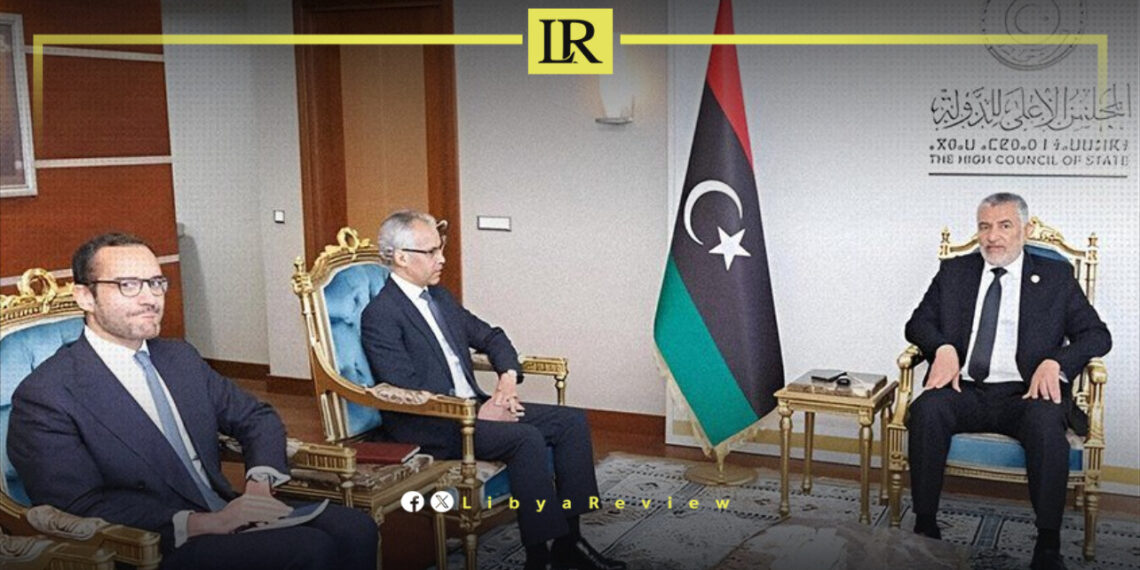The French Ambassador to Libya, Mostafa Mihraje, met with Mohamed Takala, the Head of the Libyan High Council of State, to discuss resuming the political process and bilateral cooperation between the two countries. This meeting follows the resignation of the UN envoy, highlighting a pivotal moment for Libya’s ongoing political dialogue.
During their discussion, Ambassador Mihraje emphasized the importance of continuing the political momentum in Libya, aiming to stabilize the region and strengthen the ties between France and Libya. Both officials expressed their commitment to enhancing collaboration in various sectors and supporting Libya’s path towards a peaceful and democratic resolution.
Earlier this month, the United Nations envoy to Libya, Abdoulaye Bathily, held talks with Mostafa Mihraj, the French Ambassador to Libya, focusing on the country’s current political and security dynamics.
Their meeting aimed at evaluating the prospects for reinvigorating Libya’s political process, which is presently mired in stagnation. The dialogue also covered the broader regional situation and its potential repercussions on Libya, emphasizing the urgency of navigating through the political impasse.
During the meeting, Bathily emphasized the critical need for Libya’s key factions to build on existing agreements to avoid further delays in reaching a political settlement. He also highlighted the vital role that regional and international partners must play in supporting dialogue among Libyans, aiming to foster stability and peace in the country.
This meeting signifies a collective acknowledgment that Libya’s stability is not only crucial for its own future but also for the security and stability of the broader region. The emphasis on collaborative support for Libya’s political dialogue, as highlighted in the talks, is pivotal for guiding the country towards a unified and peaceful trajectory.
Libya has been in chaos since a NATO-backed uprising toppled longtime leader Muammar Gaddafi in 2011. The county has for years been split between rival administrations.
Libya’s economy, heavily reliant on oil, has suffered due to the ongoing conflict. The instability has led to fluctuations in oil production and prices, impacting the global oil market and Libya’s economy.


